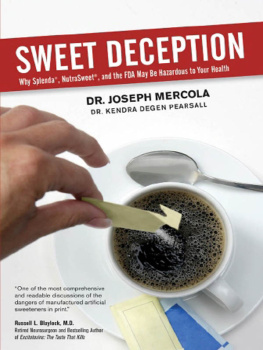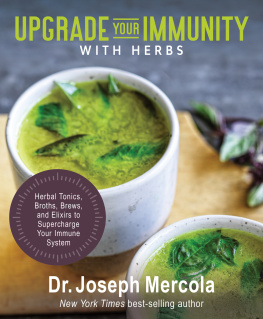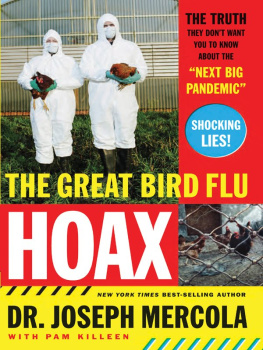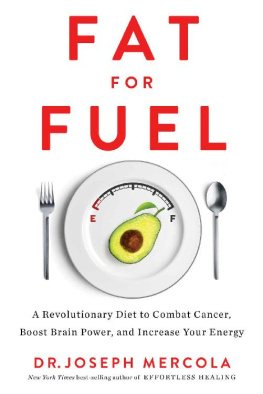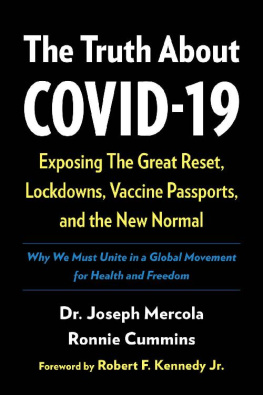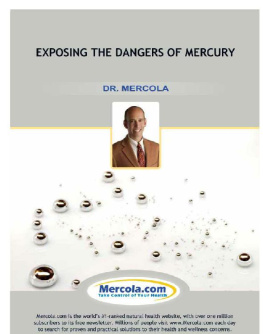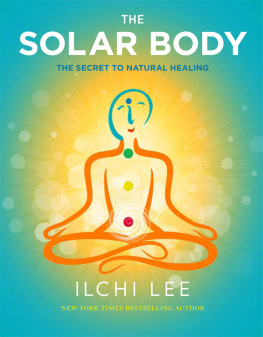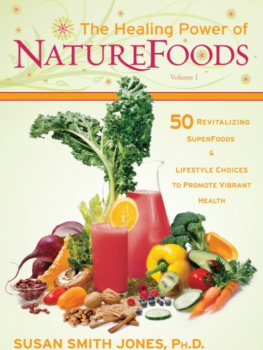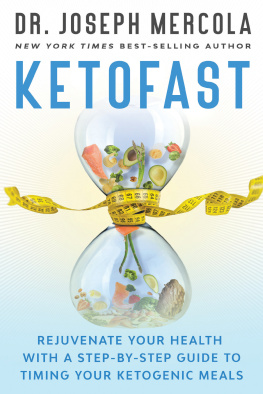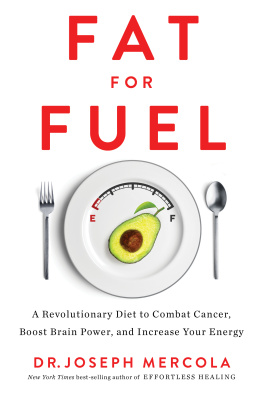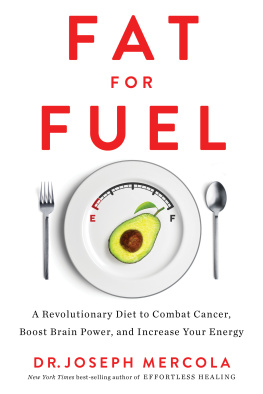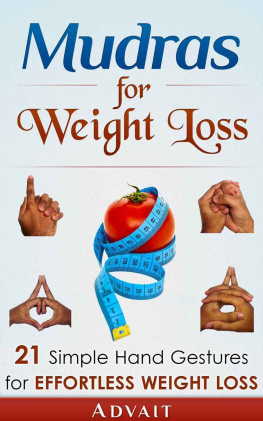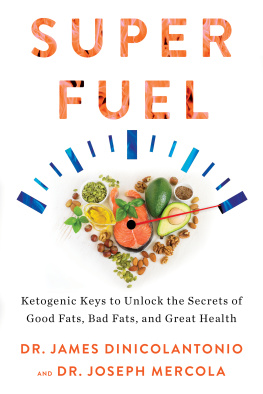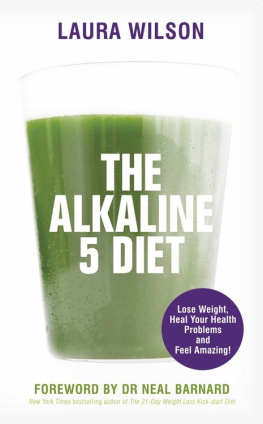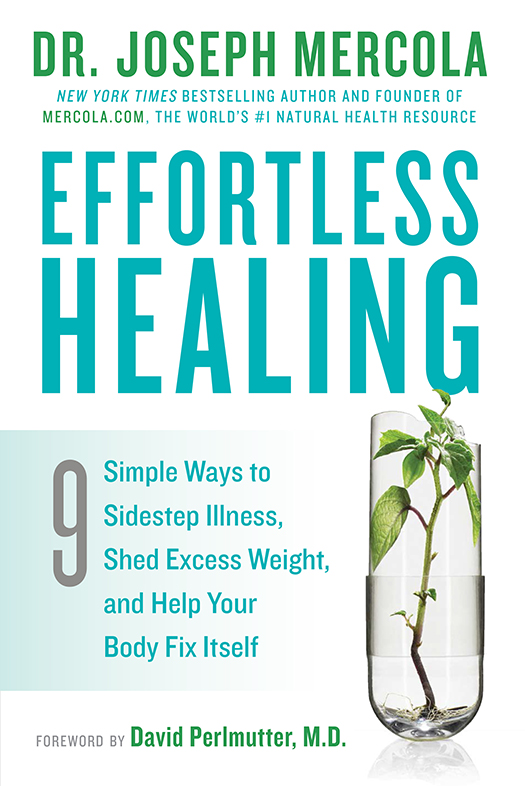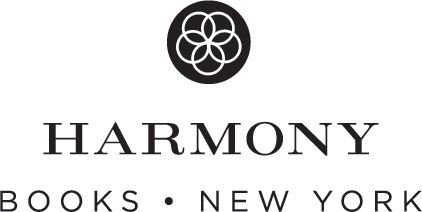EFFORTLESS
HEALING
Simple Ways to Sidestep Illness, Shed Excess Weight, and Help Your Body Fix Itself
DR. JOSEPH MERCOLA
The information contained in this book is for informational purposes only. It is not intended as a substitute for the advice and care of your physician, and you should use proper discretion, in consultation with your physician, in utilizing the information presented. The author and the publisher expressly disclaim responsibility for any adverse effects that may result from the use or application of the information contained in this book.
Copyright 2015 by Dr. Joseph Mercola
All rights reserved.
Published in the United States by Harmony Books, an imprint of the Crown Publishing Group, a division of Random House LLC, a Penguin Random House Company, New York.
www.crownpublishing.com
Harmony Books is a registered trademark, and the Circle colophon is a trademark of Random House LLC.
Some of the content in this work has been adapted from material appearing on Dr. Mercolas successful website, Mercola.com.
Library of Congress Cataloging-in-Publication Data
Mercola, Joseph.
Effortless healing : 9 simple ways to sidestep illness, shed excess weight, and help your body fix itself / Dr. Joseph Mercola.
1. Nutrition. 2. Diet. 3. Health behavior. 4. Self-care, Health. I. Title.
RA784.M47 2015
613.2dc 3 2014022046
ISBN 978-0-553-41797-5
eBook ISBN 978-0-553-41798-2
Cover design by Jess Morphew
Cover photograph: Studio S
v3.1
I would like to dedicate this book to
my Health Liberty partners.
I am lucky to know such brilliant and caring people.
Thank you, Barbara Loe Fisher, Ronnie Cummins,
Paul Connett, and Charlie Brown.
You have sacrificed so much to prevent the needless pain
and suffering that occurs in this world and inspire hope
that we can advance our global health consciousness.
C ONTENTS
F OREWORD
Y ou have been given a nearly flawless gift thats been in the making for over two million years. Your DNA, your code of life, has been refined and polished over countless generations to provide you with optimal health, functionality, and longevity.
And yet, in the last one half of one percent of our time as humans, we as a species are experiencing a dramatic challenge to our ability to stave off disease.
The explosive increase in the prevalence of diabetes, obesity, hypertension, Alzheimers disease, and other degenerative conditions is not a manifestation of any sudden change in our genetics. Indeed, genetics researchers would be hard pressed to identify any significant changes in the human genome compared with that of humans from 20,000 years ago.
So what has changed? If the genetic blueprint that codes for health and longevity has remained constant, what are the factors that have been introduced that have corrupted the message from this seemingly immutable code?
As it turns out, the notion that our DNA represents a fixed and immutable code is now looked upon as antiquated science. What weve come to understand is that our genetic code is actually aggressively dynamic in its expression. The very genes that were viewed as being locked in a glass case are now seen as responding moment to moment to any number of environmental influences.
This, the science of epigenetics, opens up not only a new way of conceptualizing the behavior of our genes but also, more important, provides a new perspective for the understanding of the rampant health issues that characterize the modern Western world.
Epigenetic research reveals that our lifestyle choicesthe foods we eat, the supplements we take, the exercise we pursue, and even the emotional content of our daily experiencesare all involved in orchestrating chemical reactions that activate or deactivate parts of our genome that will either code for outcomes that threaten health and pave the way for disease or create an internal environment conducive to longevity and disease resistance.
That is the gift of this new understanding of genes and their expression. The profound upside of this new paradigm is that it reveals that each of us has the opportunity to modify our own genetic expression and change our health destiny.
In the pages that follow, Dr. Mercola will empower you with the ability to rewrite your story as it relates to your future health. By paying close attention to the information he presents, you will learn how you can positively influence the expression of your own DNA to improve and preserve your health and extend your life.
And whether its shifting your diet to one that welcomes fat back to the table, enjoying more sunshine, dedicating yourself to getting more sleep, or even making a point to go barefoot from time to time, each of the empowering recommendations in Effortless Healing is designed to reestablish life-sustaining and life-enhancing communication with your most precious gift, your code of life.
D AVID P ERLMUTTER , M.D.
Introduction
Y ou may think that I have always been dedicated to health, but that is absolutely not the case. I was raised on dessert after most meals, doughnuts, Twinkies, chips, and ice cream. In other words, I grew up eating the typical American diet. My parents did the best that they could in trying to provide us with home-cooked meals. But they didnt know then what we know now about nutrition. As a result, by the time I was in high school, nearly half of my teeth had cavities and my face and back were riddled with acne. I was clearly, like so many others are today, working against my body, not with it.
Its a funny beginning for someone who would end up as one of the worlds leading advocates for using food as medicine. Yet my experiences fueled me to help the average personwho is used to eating whatever tastes good and is struggling with chronic conditions, yet never connected these two dots.
Over the last three decades, I have treated more than 25,000 patients as a physician, diligently reviewed a huge array of nutritional approaches, written two New York Times bestselling books, and built the most visited natural health website in the world that is dedicated to educating readers about proven ways to improve their health; Mercola.com now reaches 25 million readers every month.
The trait that is most responsible for my journey to being a champion of high-quality nutrition is my love of reading. It was an article in Parade magazine in 1968 that started me on my current path. The article was about Dr. Ken Cooper and his brand-new book, Aerobics. At that point in time, hardly anyone exercised regularly. (When I went jogging back then on the West Side of Chicago, people would throw rocks and cans at me, because they assumed I was a criminal running from the scene of a crime.) I read his book and started on a now nearly fifty-year-long commitment to fitness. Of course, my views have evolved over time. Im no longer a slavish devotee to what we now call cardioin fact, Im just the opposite. But more on that later in the book.
Back then, practicing medicine wasnt even on my radar. I entered college with an engineering major and changed to pre-med only after I started. I was very traditional in my approach to medicine in those early days: for six years before medical school, I worked as a pharmacists apprentice. I enjoyed the job and felt the drugs I helped dispense were a beneficial solution to our patients health care challenges.


